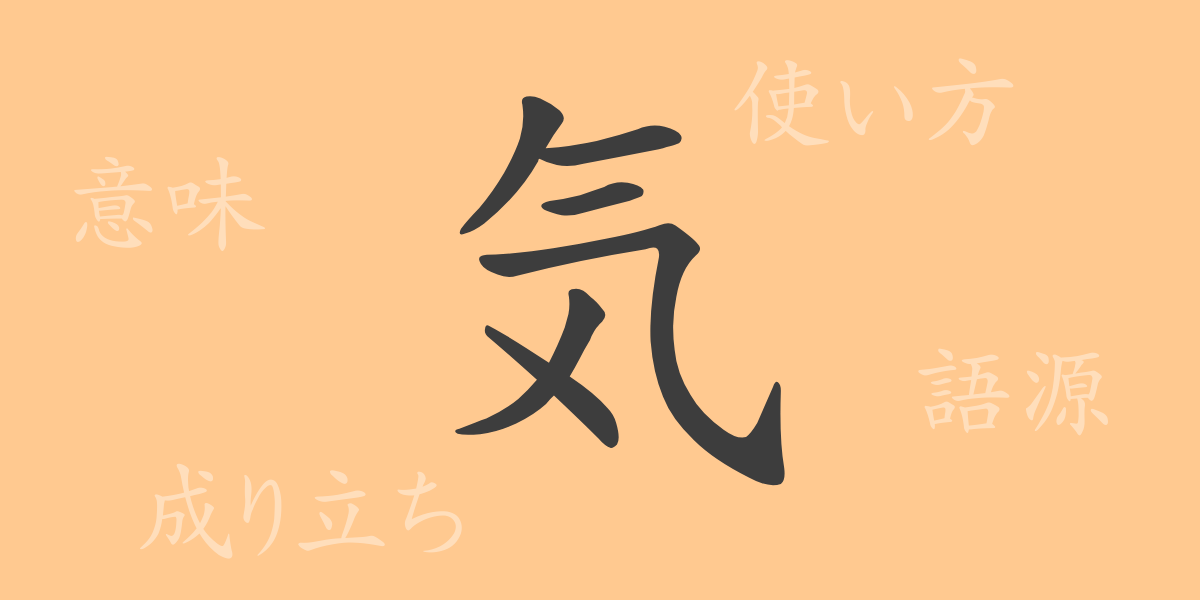Language serves as a mirror to culture, reflecting the worldview and values of its people. In Japanese, the concept of “Ki” (気) transcends mere characters. It plays a crucial role in expressing emotions, the environment, and interpersonal relationships. This article delves into the profound world of the commonly used Kanji “Ki” (気), exploring its origins, usage, idioms, and phrases.
The Origin of Ki (気) (Etymology)
The etymology of the Kanji “Ki” (気) dates back to ancient China. Originally, it was a pictograph representing the changing shapes of clouds and mist in the sky. It later evolved to signify an invisible yet felt force, the concept of “Ki” (気). In Chinese philosophy, “Ki” (気) is considered a fundamental element of the universe and life, with the belief that all things arise from and are sustained by “Ki” (気).
Meaning and Usage of Ki (気)
In Japanese, “Ki” (気) is polysemous and used in various contexts. Initially, it referred to natural phenomena and life force, but in modern times, it also denotes psychological states, signs, and atmospheres. Expressions like “heavy-hearted” (気が重い) and “be careful” (気を付ける) are frequently used to indicate emotions and attentiveness.
How to Read Ki (気), Stroke Count, and Radical
The Kanji “Ki” (気) is one of the commonly used characters in Japan.
- Readings: Onyomi (Chinese reading) is “Ki” (キ), and Kunyomi (Japanese reading) is “Iki” (いき).
- Stroke Count: A total of 6 strokes.
- Radical: Qi radical (気部) (きへん).
Idioms, Phrases, and Proverbs Using Ki (気) and Their Meanings
There is a wealth of idioms, phrases, and proverbs that include “Ki” (気). For example, “perceptive” (気が利く) means to understand someone’s position or feelings and act appropriately, while “lose consciousness” (気を失う) signifies fainting. “Wait patiently” (気長に待つ) expresses waiting calmly without rushing, and “all at once” (一気に) is used to mean suddenly or in one go. These expressions are indispensable for depicting human emotions and states in everyday conversations and literary works.
Conclusion on Ki (気)
The Kanji “Ki” (気), despite its simple form, possesses a multitude of meanings and applications. The use of “Ki” (気) in Japanese does more than just convey words; it reflects the speaker’s emotions, context, and cultural background. The infinite world of expressions that emanate from this single character tells the story of the depth and richness of the Japanese language.

























